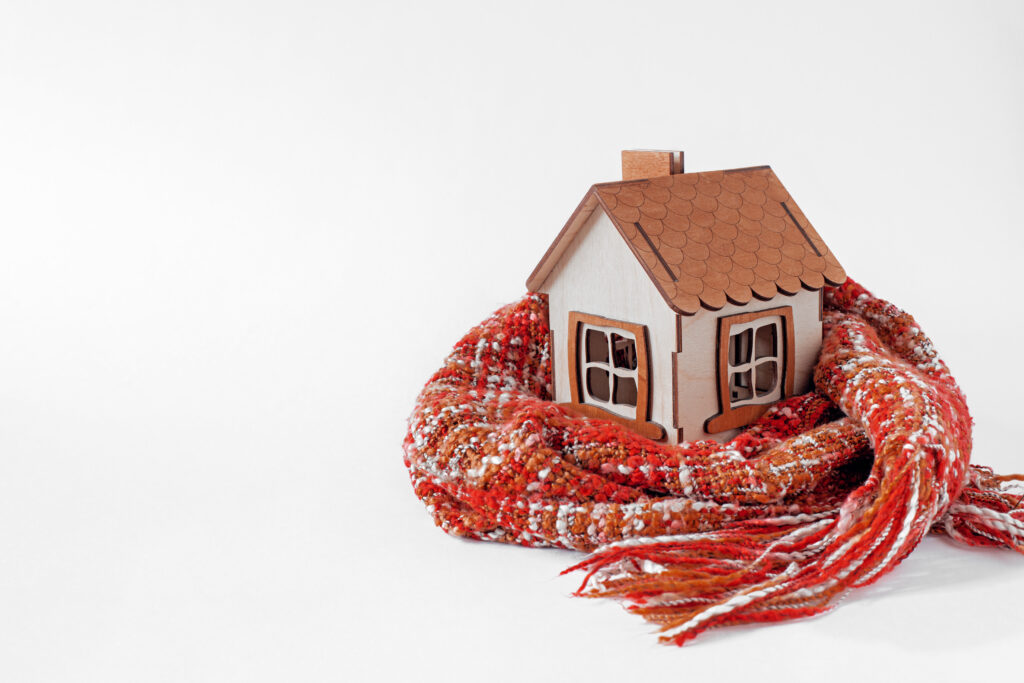In the modern building sector, the concept of living comfort has now become crucial. The quality of the environments we live in depends on a wide range of factors, that include thermal and acoustic insulation, the healthiness of the interiors and the building’s energy sustainability. In this context, tile-clad ventilated façades have now been confirmed as the prime choice for anyone looking for an efficient, modern and durable building envelope that will guarantee the well-being of the people living inside it. So, let’s look in detail at the main benefits and applications of porcelain stoneware ventilated façades that help improve the quality of life inside a building.
Living comfort and thermal insulation: the role of porcelain stoneware ventilated façades
Ventilated façades and summer and winter thermal comfort are closely related. In the building envelope design process, thermal insulation with a ventilated façade is a crucial element that guarantees a high level of living comfort in a property. The structure’s ventilated cavity generates a chimney effect that plays a fundamental role in controlling the surface temperatures of the external cladding. In summer, this promotes passive cooling by releasing accumulated heat, while in winter it significantly reduces heat loss to help keep internal temperatures stable and comfortable. Using panels made of high-density, low thermal conductivity materials, like porcelain stoneware, for ventilated façades and building insulation, further improves the envelope’s insulation capacity. This, in turn, optimizes overall energy efficiency and boosts compliance with current energy performance and sustainability regulations.
Ventilated façades for acoustic insulation: designing comfortable, silent living environments
In the context of architectural design, managing acoustic insulation efficiently is also essential for ensuring the well-being of residents, especially in high density urban contexts exposed to high noise levels. Ventilated façades for acoustic insulation offer a layered system in which ventilated porcelain stoneware tile cladding is combined with a ventilated cavity to dissipate and attenuate external noise. This is effective because the additional mass of the ventilated façade cladding and its physical separation from the load-bearing structure significantly reduce the transmission of sound waves. This, together with the high density of the materials used in residential porcelain stoneware ventilated façades for acoustic comfort means they are an ideal choice for quieter and more comfortable internal environments.

How a ventilated cavity in external walls creates a healthier environment and better air quality
To understand the role ventilated façades play in ensuring the breathability and healthiness of internal environments, it is essential to know how they work. The ventilated cavity between the load-bearing wall and the ventilated tile cladding allows air to circulate naturally, which offers numerous benefits in terms of improving the building’s comfort and durability. More specifically, this system:
- stops damp building up, thereby limiting the risk of harmful infiltrations;
- prevents the formation of mould and condensation, which improves the healthiness of internal environments;
- guarantees superior internal air quality, which boosts residents’ well-being;
- lengthens the life of the building, thanks to the protection it offers against adverse weather conditions and temperature changes.
This combination of benefits makes the ventilated wall ideal for environments that are subject to climate and thermal changes and consolidates the role porcelain stoneware ventilated façades play in ensuring the well-being of residents.
Porcelain stoneware ventilated façades for durability, ease of maintenance and sustainability
The benefits of porcelain stoneware ventilated façades feature an optimal combination of resistance, ease of maintenance and sustainability, which makes them an ideal solution for modern, durable buildings. Porcelain stoneware ventilated façade panels are highly resistant to adverse weather conditions, thermal changes and impacts, thereby guaranteeing aesthetic and functional durability with reduced maintenance. Ventilated façade tile cladding is easy and simple to clean, which helps to preserve the efficiency of the ventilated wall over time. From an environmental point of view, porcelain stoneware ventilated façades also offer effective thermal insulation thanks to ventilated façades that reduce energy consumption for heating and cooling and achieve significant economic savings and a lower environmental footprint. In short, the main benefits of porcelain stoneware ventilated façades for residential buildings include:
- a significant increase in living comfort;
- high durability and weather-resistance;
- rapid, easy cleaning and maintenance;
- higher real estate value:
- improved energy efficiency with lower consumption;
- the use of natural, eco-friendly materials.
Thanks to a careful selection of materials for its ventilated façades designed for residential well-being, Imola Tecnica offers innovative and customized solutions that enhance each external tile cladding project with ventilated façades to improve well-being inside buildings. Choosing Imola Tecnica means counting on a reliable, expert partner, that can transform every project into an efficient, long-lasting building designed to enhance the comfort of those who live inside it.



